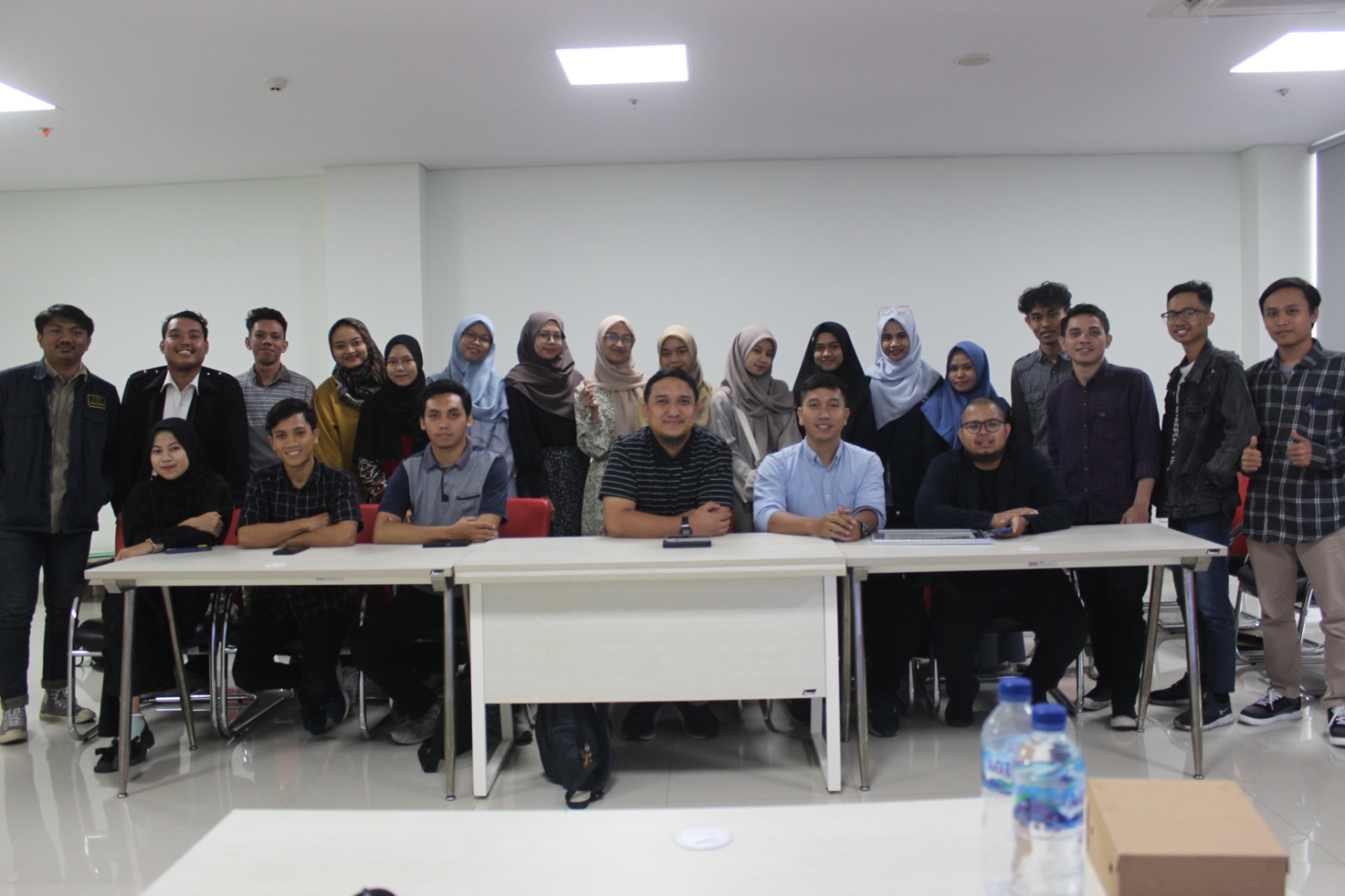Prepare Competitive Graduates: HMPM Holds a Guest Lecture on Link and Match between Sharia Economics and Sharia Financial Industry

The Association of Sharia Economics Master’s Program Students (HMPM) FEBI UIN Sunan Kalijaga Yogyakarta held a Guest Lecture event with the theme “Link and Match between Sharia Economics and Sharia Financial Industry,” on Monday, June 12, 2023, in the Munaqosyah Room on the 3rd floor of FEBI UIN Sunan Kalijaga Yogyakarta.
The event commenced with a keynote address from the Vice Dean III, who opened the guest lecture. He stated that Sharia economics serves as an alternative to achieve objectives that may not be realized through capitalist economics. He stressed the importance of effectively presenting Sharia economics to prevent it from becoming merely a commodity, highlighting the necessity for collaboration among all stakeholders. Furthermore, he explored the interconnectedness of academic theory and practical application, underscoring the need for universities to align their academic offerings with the requirements of the professional sphere.
Mr. Bembi Juniar, who led this guest lecture session, delved into the theme of linking and matching Sharia economics in the academic space with its practical application in the working world. “Talking about the current development and potential of Sharia economics already indicates positive progress and significant potential, but it requires further endeavors to fully utilize the existing potential space,” said Mr. Bembi at the outset of the guest lecture.
In terms of the ranking of Sharia products in Asia, Islamic finance in Indonesia ranks 6th, Halal food in Indonesia ranks 2nd, below Malaysia, Modest Fashion in Indonesia ranks 3rd, Indonesian cosmetic products rank 9th, and Muslim-friendly travel and media and recreation services have not yet entered the top 10. The Islamic banking industry still significantly trails behind the conventional banking sector. “Hence, it is crucial to consider on harmonizing strategies (Penta Helix) among the government, businesses, universities, media, and society to foster this growth,” he said. One approach is to align research with industry demands, raise public awareness through extensive social media campaigns, broaden the skill sets of Sharia economics graduates, facilitate access to knowledge, and more.
In his closing remarks, Mr. Bembi stated that it is crucial to anticipate the future needs of students and their aspirations while they are still in university. Particularly now, networking holds a paramount position in the professional world.
At the conclusion of the event, an engaging discussion session took place, allowing the audience to interact with the speakers. The audience's enthusiasm in sharing experiences and delving into various aspects of Sharia economics made the event truly memorable. The aspiration is for students with a background in Sharia economics to emerge as proactive individuals, contributing to the expansion of the Sharia economic market on a broader scale, and potentially exerting influence over both national and international economic arenas.
